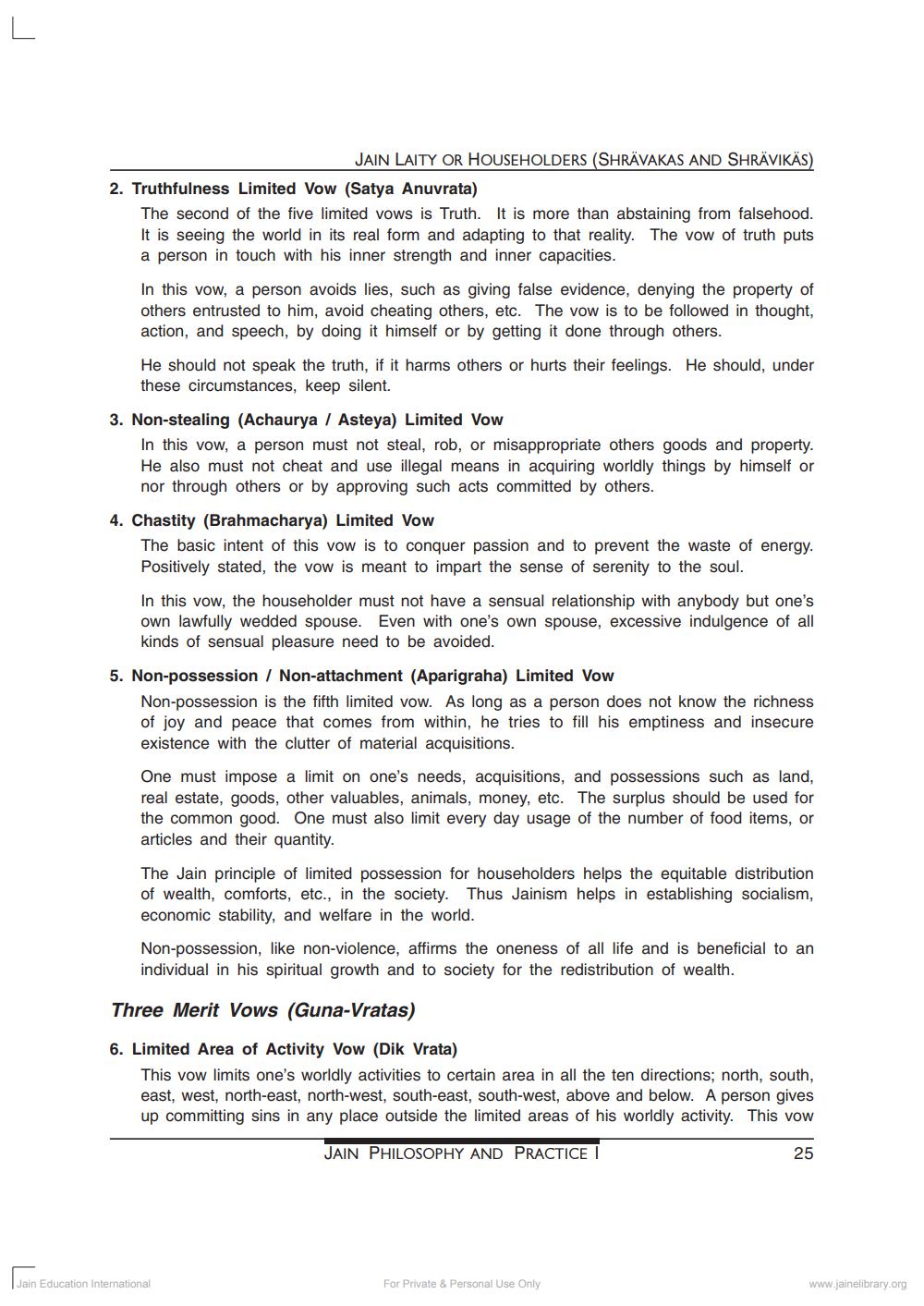________________
JAIN LAITY OR HOUSEHOLDERS (SHRÄVAKAS AND SHRÄVIKÄS) 2. Truthfulness Limited Vow (Satya Anuvrata)
The second of the five limited vows is Truth. It is more than abstaining from falsehood. It is seeing the world in its real form and adapting to that reality. The vow of truth puts a person in touch with his inner strength and inner capacities.
In this vow, a person avoids lies, such as giving false evidence, denying the property of others entrusted to him, avoid cheating others, etc. The vow is to be followed in thought, action, and speech, by doing it himself or by getting it done through others.
He should not speak the truth, if it harms others or hurts their feelings. He should, under these circumstances, keep silent.
3. Non-stealing (Achaurya / Asteya) Limited Vow
In this vow, a person must not steal, rob, or misappropriate others goods and property. He also must not cheat and use illegal means in acquiring worldly things by himself or nor through others or by approving such acts committed by others.
4. Chastity (Brahmacharya) Limited Vow
The basic intent of this vow is to conquer passion and to prevent the waste of energy. Positively stated, the vow is meant to impart the sense of serenity to the soul.
In this vow, the householder must not have a sensual relationship with anybody but one's own lawfully wedded spouse. Even with one's own spouse, excessive indulgence of all kinds of sensual pleasure need to be avoided.
5. Non-possession / Non-attachment (Aparigraha) Limited Vow
Non-possession is the fifth limited vow. As long as a person does not know the richness of joy and peace that comes from within, he tries to fill his emptiness and insecure existence with the clutter of material acquisitions.
One must impose a limit on one's needs, acquisitions, and possessions such as land, real estate, goods, other valuables, animals, money, etc. The surplus should be used for the common good. One must also limit every day usage of the number of food items, or articles and their quantity.
The Jain principle of limited possession for householders helps the equitable distribution of wealth, comforts, etc., in the society. Thus Jainism helps in establishing socialism, economic stability, and welfare in the world.
Non-possession, like non-violence, affirms the oneness of all life and is beneficial to an individual in his spiritual growth and to society for the redistribution of wealth.
Three Merit Vows (Guna-Vratas)
6. Limited Area of Activity Vow (Dik Vrata)
This vow limits one's worldly activities to certain area in all the ten directions; north, south, east, west, north-east, north-west, south-east, south-west, above and below. A person gives up committing sins in any place outside the limited areas of his worldly activity. This vow
JAIN PHILOSOPHY AND PRACTICE I
25
Jain Education International
For Private & Personal Use Only
www.jainelibrary.org




